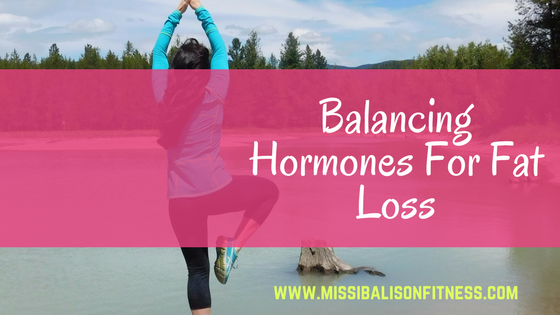Today we are going to take a look at balancing insulin and cortisol, two hormones that can wreck havoc on both your peri-menopausal state and your fat loss goals if they are running rampant

I’m going to start by defining them independently and then we’ll take a look at how they play together and what you can do to balance these two hormones so they “play nice”
What is insulin?
You can think of insulin as your blood sugar hormone. This is a step by step of how insulin works in the body
When you eat sugary treats, your blood sugar levels rise. Your blood sugar level is a measure of how much sugar or glucose is circulating in your bloodstream. Too much glucose in your blood is dangerous, so your body works hard to lower the levels. It does this by releasing insulin, a hormone which enables your cells to absorb the excess glucose.
The danger comes when you continue eating too much sugar (or starchy carbohydrates such as rice, pasta, potatoes and bread) because your body responds by producing more and more insulin. This has an impact on your fat metabolism because insulin causes the body to go into fat storage mode for quite a few hours Too much insulin trains your cells to become resistant to insulin, and this is called insulin resistance.
When we get to a state of insulin resistance it then takes more and more insulin to make your cells remove the glucose from your blood. When this happens, your blood sugar levels stay elevated, your insulin levels stay elevated ( so does fat storage) and you develop pre-diabetes. If you are a woman over age 50, you’re especially vulnerable to becoming a diabetic.
Insulin does two things that make large weight fluctuations possible
- It causes the body to retain sodium
- It increases carb storage in the form of glycogen.
Both cause the body to store water when insulin levels are raised and both lead to the body shedding water when insulin is lowered.
Water follows sodium. The more sodium you retain, the more water the body will also hold onto. This is why you often weigh more after a weekend of carbs and treats. This is also why high sodium foods are not as big an issue when consumed in a low carb diet. The low insulin causes less sodium to be retained.
Glycogen is the name we give the stored form of starch/sugar. When not used quickly for energy, this sugar is stored in the liver and the muscle to be used later. Glycogen stores hold 3 times their weight in water. As we store more and more glycogen (because we didn’t use up the sugars/starches with our activity), water retention increases and weight is gained. As glycogen stores go down, water is lost and weight is lost.
When carbs are reduced water retention will be reduced as long as your body is not in a state of insulin resistance. This is a good sign and while none of this water loss is fat, it does show you that your body is responsive to weight loss
Not losing this water weight when reducing carbs is an indication of fat loss resistance and that there is something other than insulin interfering with the person’s fat loss results. If the water is not lost, the first thing to think of is either thyroid and/or adrenal dysfunction. Another common cause of continuing to hold onto water is food allergies & the chronic low grade inflammation it creates.
Ok let’s move on to cortisol.
What is cortisol?
 Cortisol is often referred to as the “Master of all hormones” because it has the ability to wreak havoc on our body’s fragile endocrine (hormonal system) balance. In spite of the mixed opinions one thing is certain: cortisol is a powerful hormone necessary for life. But if its level is not optimal in your body, your health could suffer.
Cortisol is often referred to as the “Master of all hormones” because it has the ability to wreak havoc on our body’s fragile endocrine (hormonal system) balance. In spite of the mixed opinions one thing is certain: cortisol is a powerful hormone necessary for life. But if its level is not optimal in your body, your health could suffer.
The hormone cortisol is produced in the adrenal glands and has several important functions including:
- Regulating blood sugar,
- Helping to metabolize fats, protein and carbohydrates
- Assisting in managing our stress response.
- Regulating sleep cycles and wake drives (learn more about sleep HERE)
We all have times of stress in our lives, and cortisol helps us to function during these times.
When the stress goes up, cortisol kicks in and delivers help. It’s really pretty amazing how it all works.
Check this out:
- Something freaks us out
- We get a quick burst of energy,
- Our memory recall sharpens to help think back to our response last time something like this happened
- Our immunity increases,
- Our sensitivity to pain decreases.
- Our pupils dilate so we can clearly see what that potential dangers are
- Blood shunts from the stomach and other organs to the muscles in case we need to sprint away from a lion
- Our heart rate raises – to help us get our sprint on
- Sugar dumps into the bloodstream to be used as fuel during the potential upcoming sprint (Remember this tid bit for later when we talk about fat storage)
There are even more events but that covers a bunch of them. Isn’t that amazing how the body prepares us to protect ourselves from impending danger. These are all important and natural functions of cortisol and ensure that we are able to weather the curveballs that life throws at us. I have a pretty good article about how this works HERE)
The problem lies in the fact that if the stress doesn’t let up, neither does the cortisol. Unfortunately, what is healthy in small bursts becomes dangerous over the long term. If you have persistent stress in your life, then you have cortisol levels that are out of balance: your body makes so much cortisol that it detrimentally affects your health. This leads to adrenal fatigue.
When you have prolonged, high levels of cortisol in your bloodstream
- You will crave foods that are high in carbs (like cake and cookies)
- You will gain weight in your abdominal area (which increases your risk of heart disease and diabetes),
- You will have trouble sleeping
There is also an important piece about the adrenal glands in relationship to menopausal women. As our  bodies stop producing estrogen (menopause) we have the ability to rely on the adrenal glands as a backup generator of sorts to do some of the work that estrogen used to help us out with. If we are continually running ourselves into the ground day after day, year after year, we will have a very limited reserve to pull from in our time of need. This is often why so many women have so many struggles in their menopausal years. It is KEY to be reducing stress and cortisol overproduction LONG before we hit menopause.
bodies stop producing estrogen (menopause) we have the ability to rely on the adrenal glands as a backup generator of sorts to do some of the work that estrogen used to help us out with. If we are continually running ourselves into the ground day after day, year after year, we will have a very limited reserve to pull from in our time of need. This is often why so many women have so many struggles in their menopausal years. It is KEY to be reducing stress and cortisol overproduction LONG before we hit menopause.
To add insult to injury here (not to be negative, but you’ve got to know this stuff), perimenopausal women are cortisol sensitive which means we produce cortisol and don’t necessarily process it or clear it from the body. There are 4 times more cortisol receptors in the belly fat which is why menopausal women so easily store weight in the abdomen.
Balancing insulin and cortisol for better menopausal health
Pulling it all together
The key to this whole situation is learning the importance of balancing insulin and cortisol.
Remember the little tid-bit I mentioned earlier about cortisol stimulating the release of sugar into the bloodstream so we can start sprinting if necessary?
And, remember what I said earlier in our insulin talk about sugar present in the bloodstream causes a spurt of insulin to remove the sugar?
Remember what I said about Insulin being a fat storage hormone?
AHA!
This is where the problem lies:
- Stress creates cortisol
- Cortisol creates sugar
- Sugar creates insulin
- Insulin is a fat storage hormone
- Perimenopausal women produce more cortisol and don’t clear it out as easily as when they had estrogen floating around the bloodstream
What is the answer?
I hope that you just had an A-ha moment there and have already figured out the answer but just in case you are still reeling with the awesomeness of this revelation I will help a sister out!
In order to have the smoothest menopausal transition and store the least amount of fat, we need to reduce stress in a major way – like this should be a huge priority for you starting now AND we need to really be watching our sugar and starchy carbohydrate consumption.
Now these two things are not the only things to do to experience a smooth menopausal transition but in regards to creating a healthy balance with these two hormones, insulin and cortisol, these strategies will take you a long way.
Peri menopausal women… THIS IS FOR YOU! Do not wait until these changes are upon you. Learn how to make adjustments NOW before they creep up on you! The 6 week Menopausal Metabolic Mastery Program will employ my Hormonal Reboot Method. Click HERE to find out more!


